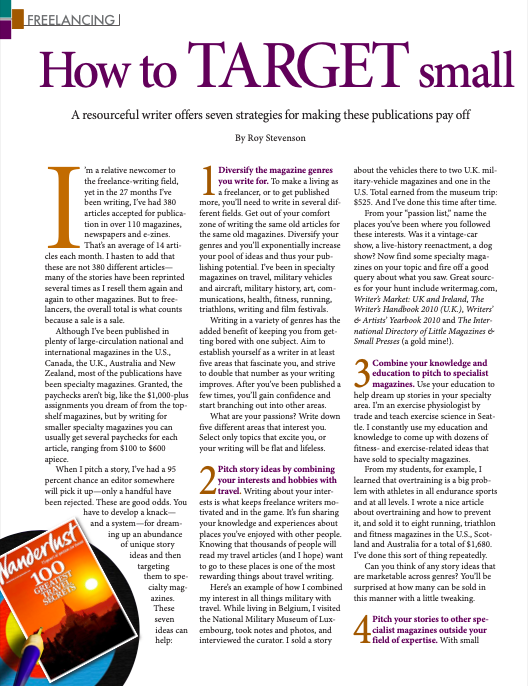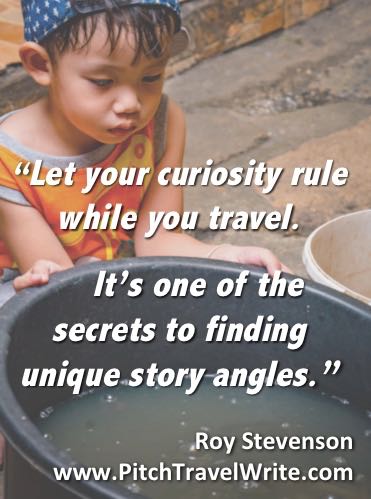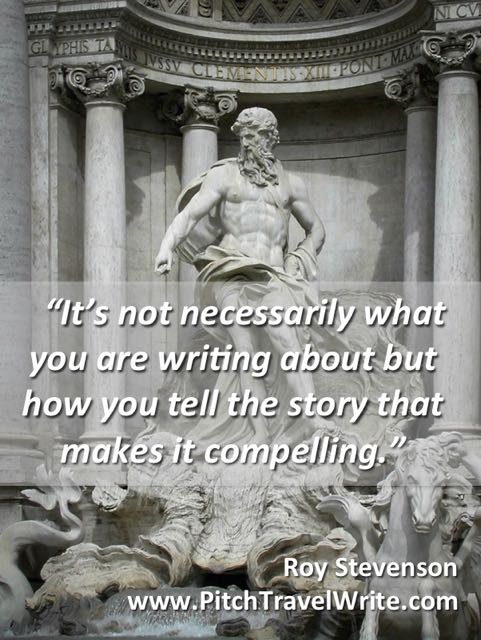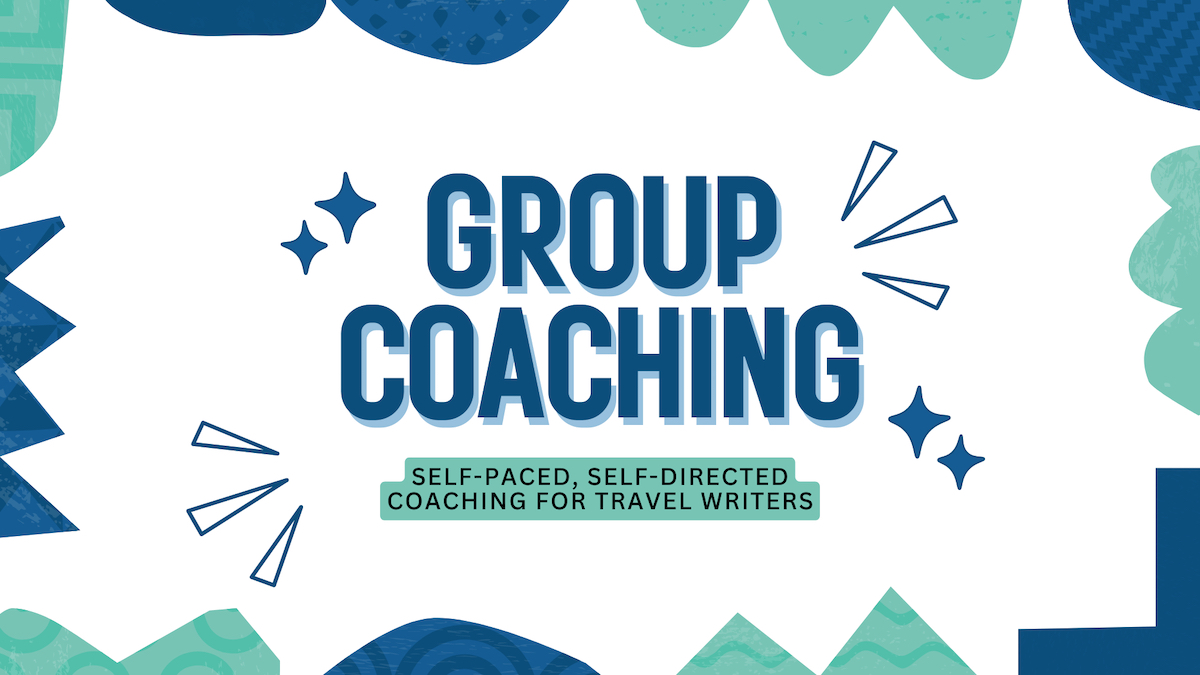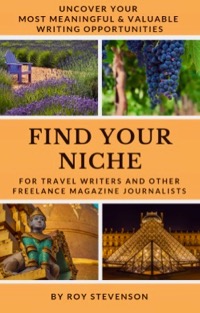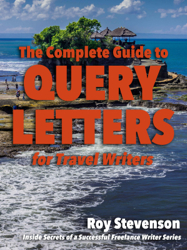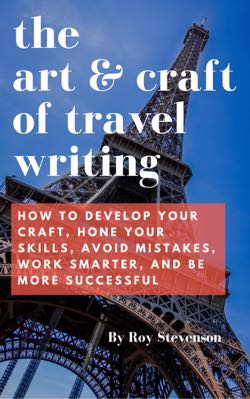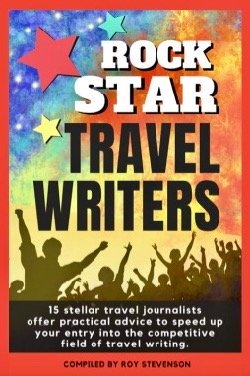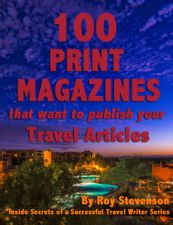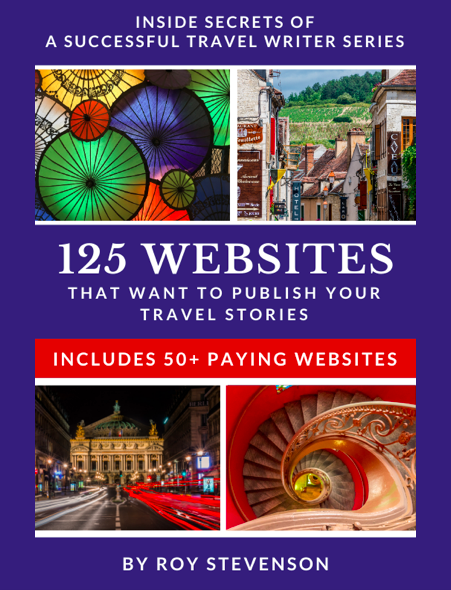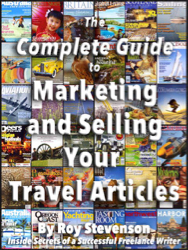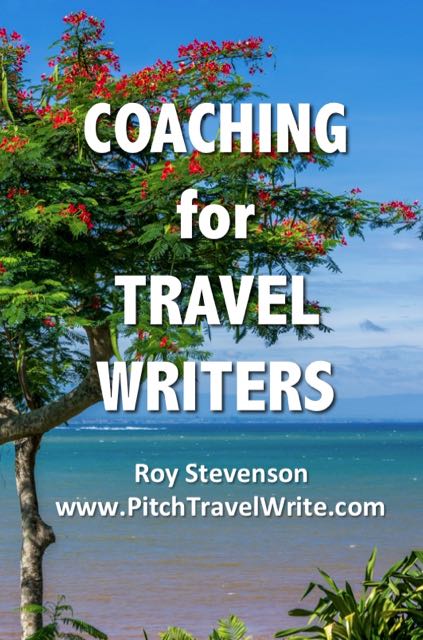- Home
- Travel Writing Craft Resources
- AI and Travel Writing
AI Travel Writing:
Will Artificial Intelligence
Replace Human Writers?
By Roy Stevenson
Every day we hear how Artificial Intelligence (AI) is being used. Writers ask if AI travel writing will replace human travel writing. Some experts tout AI as a benign tool that can help us tremendously; others claim that it merely regurgitates what’s already out there. I decided it's time to look at AI and what it means to travel writers.
What is AI?
 Artificial Intelligence, or AI, is simply a robot (bot) generating content that already exists somewhere online.
(This image was generated by AI)
Artificial Intelligence, or AI, is simply a robot (bot) generating content that already exists somewhere online.
(This image was generated by AI)One way AI is being used is to generate content — typically something that writers do. But AI generates content based on existing data. This content is generated using machines and it’s like google on steroids.
It’s claimed that AI not only collates information, but presents that information in a cogent way. Many believe that AI will save us tremendous amounts of time and research by producing “instant” and specific data.
I’ve been watching AI closely since it hit the headlines. And I’ve especially been following its infiltration into the travel writing arena. If you’ve done any reading about this, you’ll find AI-articles that may sound good at first glance but are often inaccurate, and usually poorly written.
Here’s what I’ve found . . .
Magazine Editors Do NOT Want AI-Generated Articles
Recently, while preparing my 500 Print Magazines That Want To Publish Your Travel Articles listings — which entailed poring through the Writers’ Guidelines of 550+ travel & lifestyle magazines of all stripes — I only encountered one magazine that admits to using AI-generated content. And the editor of this magazine was quick and clear to point out that his occasional AI articles are fact-checked and scrupulously edited before printing.
Conversely, I noted that the Writers’ Guidelines in several dozen travel & lifestyle magazines indicated that AI-generated articles would NOT be considered for publication in their pages. It seems that travel magazine editors actually want their writers to visit the destinations they write about.
Using AI Will Hinder Your Credibility As A Travel Writer
Magazine editors pay for us to be the creatives behind our stories. An editor who gets even the slightest hint that we’re submitting AI generated copy will not work with us. Don’t even think about submitting AI-generated copy to an editor.
Most of us can tell when copy is AI generated — editors can tell, too. They’ve seen it all and can tell within a few sentences if a story is AI-generated or created by a real human writer.
Why are travel magazine editors rejecting AI-generated stories?
AI Travel Writing is Junk
The AI-generated travel writing I’ve seen so far has been limp, unimaginative, motionless prose loaded with lame travel clichés. In fact, one of the classic “tells” of AI travel articles is the widespread overuse of clichés. (e.g. rich history, charming, breathtaking views, must-see destination, must-visit destination, lush vegetation, welcoming people, delicious cuisine, etc.)
 AI will generate anything you ask for - in this ai-generated travel photo I asked for a "vibrant travel scene in France". It looks sort of real but also definitely fake. Would someone really mount a bell tower on top of their house? Have all the shutters been recently painted pretty, vibrant colors? Not likely. AI generated content will spew back that same kind of garbage if you use it for writing.
AI will generate anything you ask for - in this ai-generated travel photo I asked for a "vibrant travel scene in France". It looks sort of real but also definitely fake. Would someone really mount a bell tower on top of their house? Have all the shutters been recently painted pretty, vibrant colors? Not likely. AI generated content will spew back that same kind of garbage if you use it for writing.Overused Words Are A Clear Indicator Of “Fake” Travel Writing
One significant problem with AI travel writing is that it’s only as good as the original material it is dredging up. If the original copy is poorly written, the AI-generated copy will reflect this. Poor online travel articles and badly written travel blogs are riddled with words like stunning, beautiful, vibrant, amazing. The AI bot doesn't care and will use this garbage.
You’ll See Constant Repetition Of Generic Sentences Emerge Throughout AI Travel Text
 Image generated by AI
Image generated by AIReading travel content with aimless filler leaves you with the impression that the “writer” was just throwing in “junk” words to meet a required word count. The shallow, generic advice repeated throughout AI articles includes trivial information about tourist attractions that say little more than, “When you are in Paris you must visit the Eiffel Tower.”
Other superficial — and obvious — pieces of advice dispensed in AI travel writing include, “Plan your travel in advance,” “Visit the historic cities,” “Explore the national parks,” “Enjoy the beaches,” and “Try the local food.”
Seriously? Does anyone really need to be told these obvious things?
Information In AI-Generated Text Is Often Off-Topic Or Irrelevant To Prospective Visitors
Here are a couple of irrelevant sentences I picked up from some AI travel copy:
“Infrastructure development: this country is investing in infrastructure development to improve the travel experience for tourist.”
“Diversifying tourist offers: The government is seeking to diversify its tourism offerings.”
Who cares about this stuff? Not a tourist. Not a travel writer. Not your readers.
Travel Guidebooks Are a Ripe Market For AI Knock-Offs
There are growing concerns that authors and writers may be replaced by AI systems generating poor quality books and even impersonating human-written books. This is already happening in travel guidebook writing, at least in eBook format, and it's not a good thing.
Let’s face it — travel guidebook writing from reputable sources is not exactly known for its dazzling prose! Guidebooks are concise and convenient repositories for accessing up-to-date information about a destination. This emphasis on data (versus style) has made guidebooks prime targets for AI-generated information. And so they’re highly susceptible to AI manipulation.
There are currently a significant number of AI-generated travel guidebooks on Amazon.com. I recently (February 2024) snagged more than one dozen of these when they were first posted on Amazon for free. I suspected, at first glance, that they might be AI generated and took some time to read them. I was underwhelmed with their content and writing. Recurring examples of the above AI errors confirmed these guidebooks were shoddy AI-generated knockoffs.
Let the eBook travel guide buyer beware!
In addition to the above symptoms of AI-generated writing, AI guidebooks have other signs to watch for. Here are a few . . .
1. They’re Written By Unknown Travel Writers
That’s because they’re not written by real people. Online searches for these “writers” does not reveal any previously published travel articles. These fake authors have no travel writers’ websites. No print magazine article portfolios. No online travel articles. No LinkedIn presence. No evidence of professional memberships. Nothing!
I often see AI guidebook “writers” with fabricated biographies—written by AI, of course! These writer’s bios offer no evidence of print magazine bylines (the prime bellwether for a freelance writer.)
Why is evidence of a travel writer’s previously published work so important to guidebook publishers? They hire only seasoned travel writers for their contracts. Quality is the keyword in reputable guidebook writing because poorly written guidebooks discourage potential buyers from purchasing any further books from this publisher.
2. AI-Generated Guidebooks Often Use Author’s Names Resembling Notable Or Popular Travel Writers.
This is another “tell.” A recent dramatic example was an AI guidebook written by “Mike Steves” of Edmunds, Washington, who was taken to task in August, 2023, by noted travel writer Rick Steves of Edmonds, Washington, of “Europe Through the Back Door” fame. (See link at end of this article for the full story.)
3. AI-Generated Guidebooks Regurgitate Non-Specific (Useless) Information About Destinations
Phrases like “The country has a number of great beaches,” “The island has a number of charming towns and villages to explore” are clear indicators of AI-generated travel writing. If you’ve recently purchased eBook guidebooks with vague phrases like these, congratulations, you’ve just been ripped off — by someone using AI and pretending to be a real writer!
 Robot at the beach. Yes, this was also ai-generated. The robot has claw-like hands, an unusual feature for a robot. And the background is fuzzy - a sure sign it's not a real travel photo and is a fake image. AI travel writing is equally vague and fuzzy.
Robot at the beach. Yes, this was also ai-generated. The robot has claw-like hands, an unusual feature for a robot. And the background is fuzzy - a sure sign it's not a real travel photo and is a fake image. AI travel writing is equally vague and fuzzy.Other AI and Travel Writing Points to Ponder
AI Takes Away Your Unique Writing Voice
Some writers think using AI will help them compile content. It won’t.
Using AI will distract you and weaken your authentic writing voice. Your travel writing voice is that unique blend of your personal experience at a destination and your observations at that destination. Your travel writing voice reflects how you interpret a place in your own mind (not someone else’s).
Just as importantly, your writing echoes your personal style, grammar, syntax, composition, and the myriad other elements of travel writing. AI blunts your development as a travel writer because you’re not going through the critical thinking and learning process when AI does this work for you (poorly).
AI does not think like an individual. AI-generated articles emerge from a collective and are wooden or plastic without any personal “oomph” or insights. AI travel writing reads worse than any Wikipedia entry and not like a personalized account of your travels. It's not written in a human voice.
Ethical Implications of AI Travel Writing
The most important point has to do with ethics. It should come as no surprise to learn that a trade group of US authors has sued OpenAI (one of the several AI generators) for unlawfully using its AI chatbot ChatGPT for knocking off their work. I’m sure you know plagiarism is a big “no-no” in any form of writing. It’s a form of stealing and is considered a serious offense.
Kindle Direct Publishing now states, “We require you to inform us of AI-generated content (text, images or translations) when you publish a new book.” How they are enforcing this is yet to be seen.
Summary
Travel writing is creative writing. Using AI to generate articles from idea to completion completely removes any original thought and creativity from the writer. We should be creating our own articles after we visit a destination, rather than programming a bot to do this work for us.
Writers love to see their articles in publications. They know that they dreamed them up, pitched them, and then wrote them by themselves. This self-satisfaction and feeling of accomplishment cannot be replaced by pushing a few buttons and having a machine spit out unoriginal content for you.
People want to read about your travel experiences at a destination. Human to human. AI can’t reproduce the human element.
And, lest you are wondering if this article is AI generated, the answer is a resounding “NO.”
Further Reading about AI and Travel Writing
https://www.nytimes.com/2023/08/05/travel/amazon-guidebooks-artificial-intelligence.html
https://community.ricksteves.com/travel-forum/tourist-scams/a-i-generated-guidebooks-scam-online
To learn more about travel writing cliches and the craft of travel writing:
https://www.pitchtravelwrite.com/cliches.html
https://www.pitchtravelwrite.com/travel-writing-craft-topics.html
Do you struggle to craft an engaging story,
and wonder how to get past this barrier?
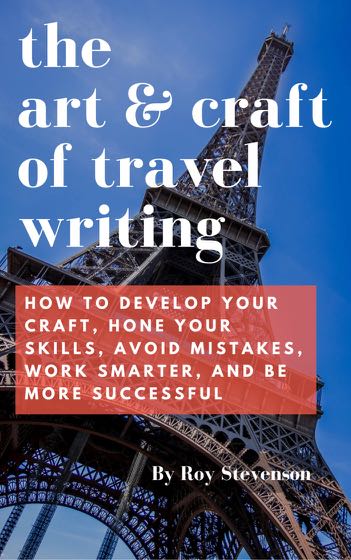
There are many tools and techniques you can learn. And they're not difficult!
If
you’re prepared to work on your writing style and make improvements,
you’ll get your stories published in highly respected, paying
publications.
The Art and Craft of Travel Writing is a handy reference with tips and techniques to help you.

Roy Stevenson is a professional travel writer and the author of www.PitchTravelWrite.com. Over the past ten years, he’s had more than 1000 articles published in 200 magazines, trade and specialty journals, in-flights, on-boards, blogs and websites and has traveled on assignment around the U.S. and to dozens of international destinations.
IF YOU ENJOYED THIS POST, GET UPDATES. IT'S FREE.
